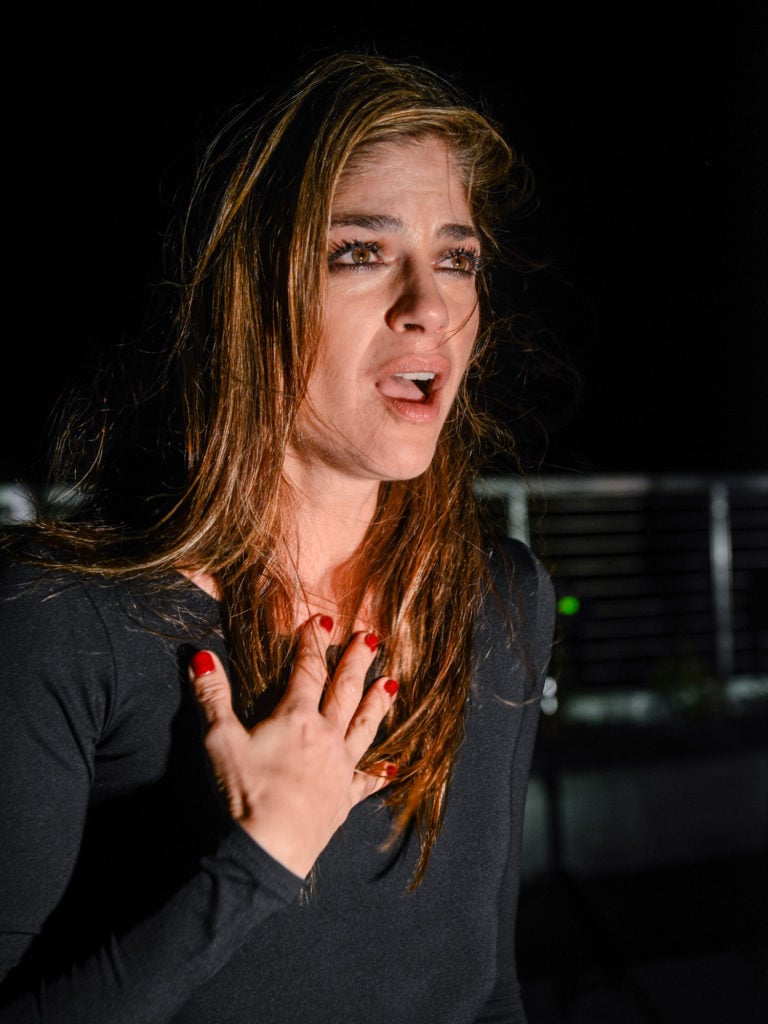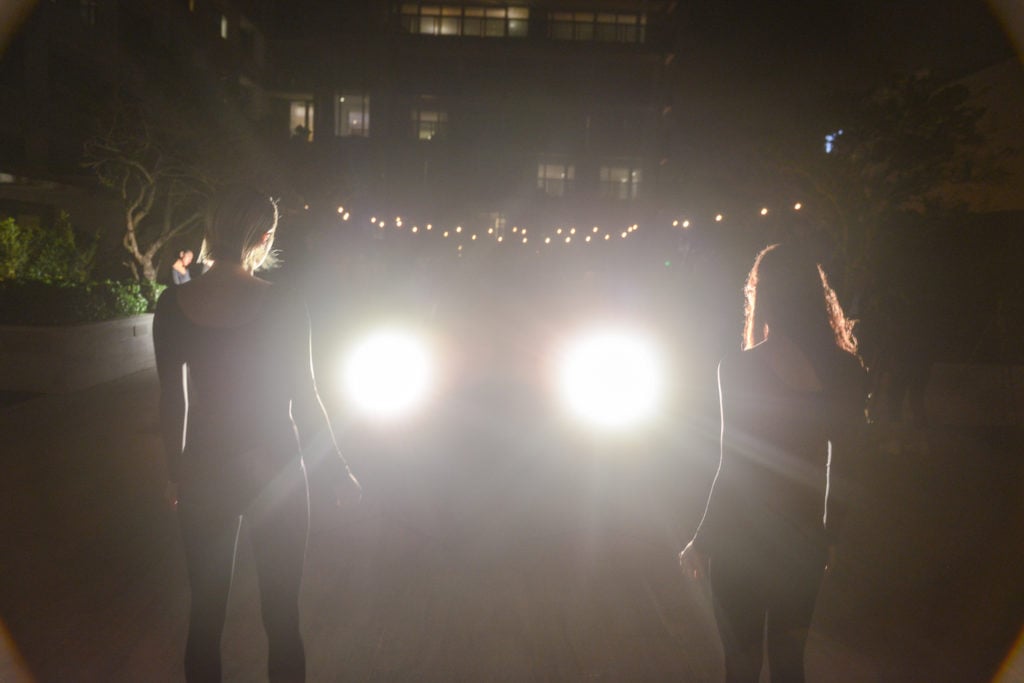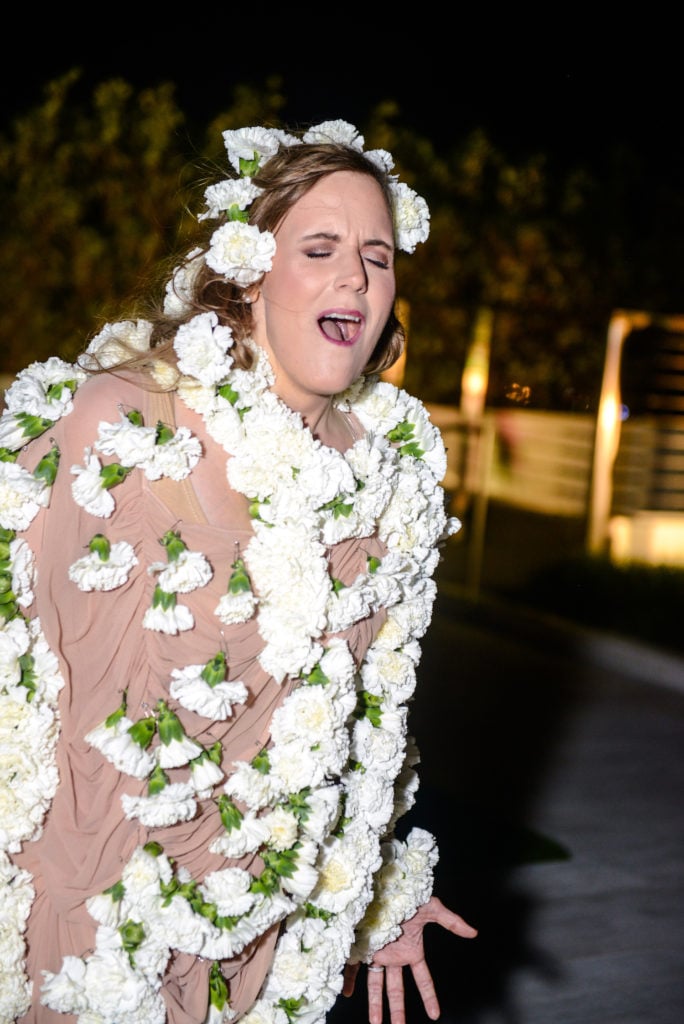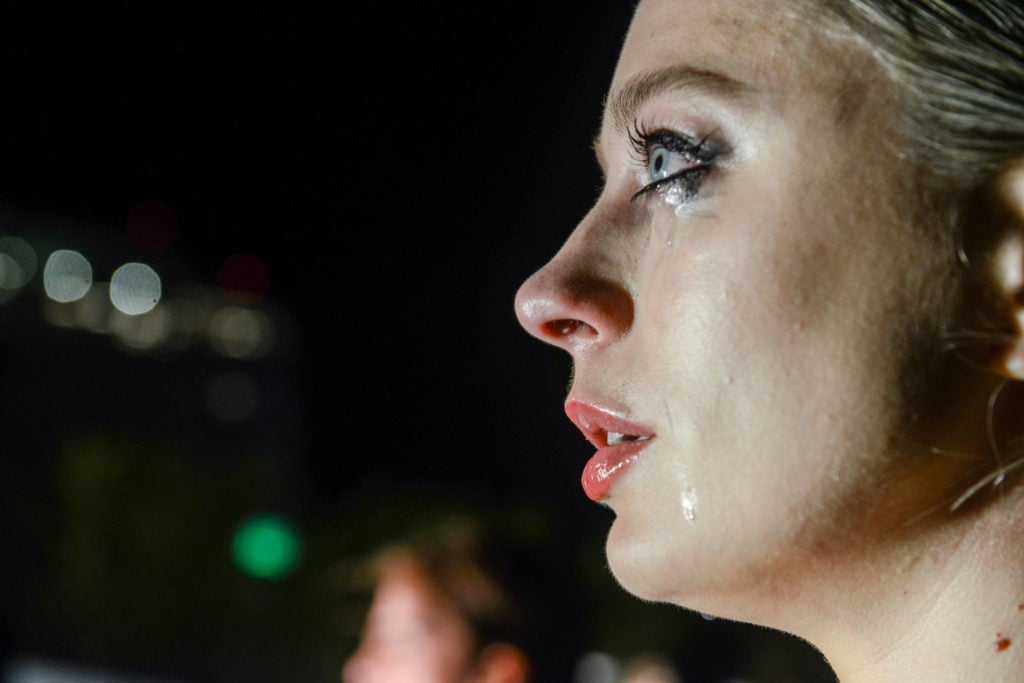Events and Parties
Selma Blair Stars in Tara Subkoff’s Art Basel Performance on the Aftermath of Weinstein
Subkoff was inspired by the women who have shared their stories.

Subkoff was inspired by the women who have shared their stories.

Sarah Cascone

Nothing brings out art-loving celebrities like Art Basel in Miami Beach, but last night’s performance from actress and conceptual artist Tara Subkoff, starring actress Selma Blair and musician Caroline Vreeland, was decidedly lacking in the typical over-the-top spectacle. In fact, the mood was quite the opposite.
Synaptic Fatigue/Dear in the Headlights was inspired by the wave of accusations of sexual misconduct against high-profile men in various fields that have come to light following reports from the New York Times and the New Yorker detailing movie producer Harvey Weinstein’s long history of alleged sexual harassment and assault.

Tara Subkoff’s Synaptic Fatigue/Dear in the Headlights at the Miami Beach Edition hotel. Courtesy of BFA/Madison McGaw.
“I think it’s a real moment in history,” Subkoff told artnet News. “Hopefully it will effect great change.”
Subkoff, whose filmography includes roles in As Good as It Gets (1997) and The Cell (2000), told Variety that she was blacklisted in Hollywood after rebuffing Weinstein’s advances. Forced to pursue a new career path, she opened her art and fashion label, Imitation of Christ, in 2001.

Rebecca Ringle in Tara Subkoff’s Synaptic Fatigue/Dear in the Headlights at the Miami Beach Edition hotel. Courtesy of BFA/Madison McGaw.
In Synaptic Fatigue, women in black leotards stood in pairs across the rooftop of the Miami Beach Edition hotel, a spotlight shining into each of their faces. Some looked angry or frightened; others cried. Blair and Vreeland were in the middle, their distraught expressions absolutely arresting. Opera singer Rebecca Ringle, clad in a loose nude bodysuit adorned with white flowers, moved slowly across the rooftop, weaving back and forth as she sang.
“It was supposed to be flowers falling off, one for every woman who has come forward and shared her story,” said Subkoff.
Throughout the hour-long piece, Ringle performed songs in five languages, from composers Monteverdi, Handel, Bach, Schumann, Bizet, Verdi, and Britten—some 400 years of music. The pieces were selected for their themes, which included misogyny, alienation, paralysis, grief, rape, and rage.
“Since Trump’s election, people have been in a perpetual state of shock and confusion,” Subkoff explained. The piece is meant to reflect those emotions, and how difficult it has been to live with them for an extended period of time. Each performer in Synaptic Fatigue was instructed to think about their own negative experiences, and to hold onto the emotions they made them feel, be it sadness, pain, or rage, for the duration of the piece.

Caroline Vreeland in Tara Subkoff’s Synaptic Fatigue/Dear in the Headlights at the Miami Beach Edition hotel. Photo courtesy of BFA/Madison McGaw.
“Sustained anger and fear is not biologically natural,” said Kathy Grayson of the Hole Gallery in New York, which hosted the performance. “There are a limited amount of neurochemicals. It’s an endurance piece.”
The guests at the party were subdued, largely eschewing the open bar and speaking in hushed voices. In contrast, music floated up from the beach below, the sounds of Beyoncé clashing with Ringel’s mournful, dulcet tones. It was a “serendipitous accident of weirdness,” according to Grayson, that only served to heighten the emotion of Subkoff’s thoughtful, introspective performance.